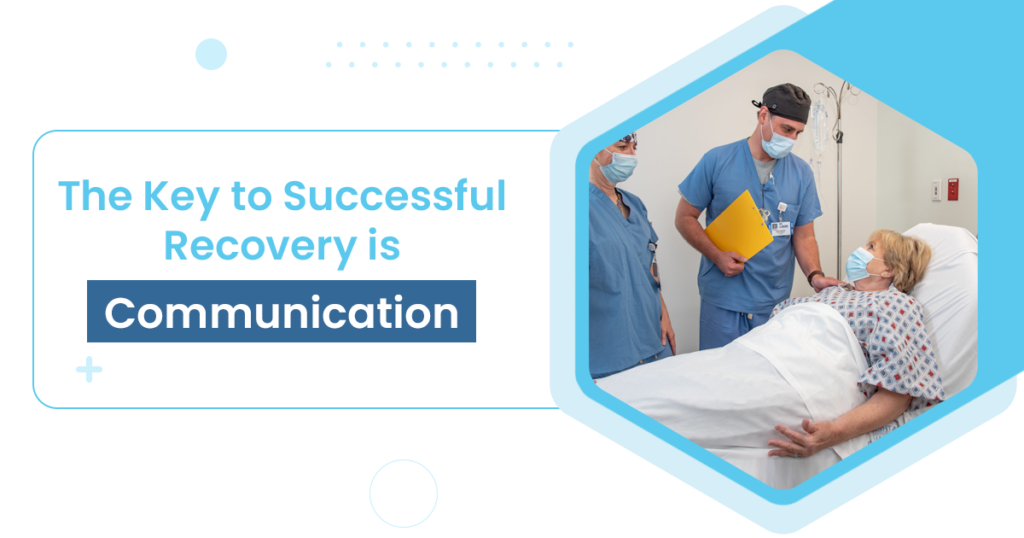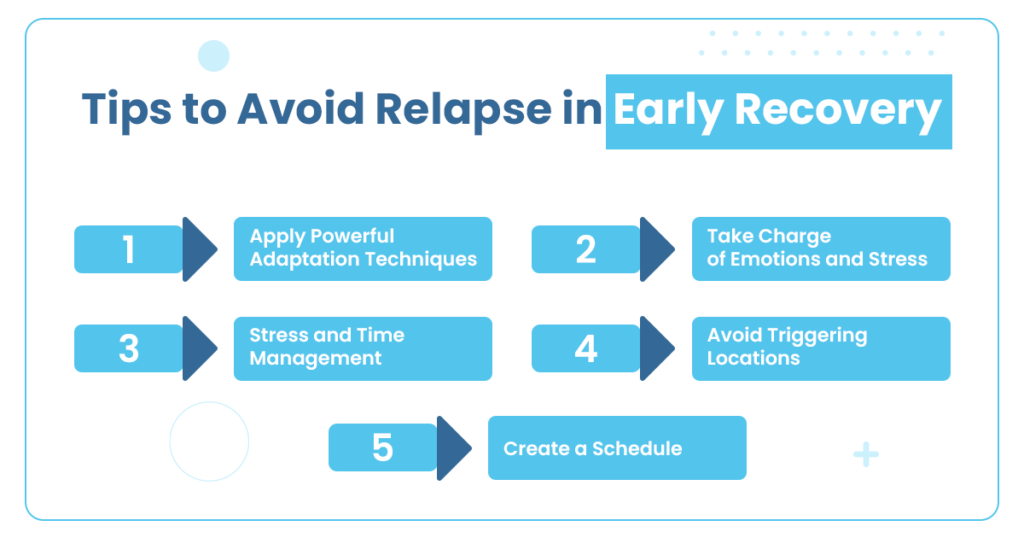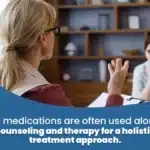
The early stages of recovery can be challenging for anyone who has struggled with drug or alcohol addiction. If you’ve grown accustomed to turning to drugs or alcohol to get through tough times in life, maintaining sobriety may be difficult. It is best to pick up several life skills during the early stages of rehabilitation to smooth the transition. After completing drug or alcohol rehab, patients can return to their regular lives. This includes attending work or school and visiting their loved ones.
After spending years of abstinence, one gets successful in achieving sobriety. After rehab, going back to everyday life can include reintroducing oneself to various new relapse triggers. The relapse triggers may include lack of support, anxiety, fear, and more.
To prevent the ordinary temptations of daily life after treatment, precautionary measures must be taken. When patients go through a residential treatment program, they are surrounded by around-the-clock medical care and support. A treatment facility like the Haven treats alcohol use and will offer aftercare treatment plans in which the counselors will help guide you through the challenges of recovery.
The Key to Success is Communication
Without supporters, recovery can feel impossible. Sponsors in 12-Step programs can hold this position in your life. Those in need of mentors can access non-12 Step programs. They may even work for or volunteer for nonprofit organizations as residents.
Social skills are integral to getting back on track in life. In the long run, cognitive behavioral therapy and other evidence modules are helpful in addiction recovery. Individuals go through the recovery process by learning appropriate recovery skills. Lack of support is something that triggers your way towards relapse.
Without effective communication, it is impossible to develop healthy relationships with loved ones, in addition to friends, employees, and strangers. You learn how to communicate honestly, how to be receptive to different points of view, and how to pay close attention to people who are speaking. Recovery through rehab can help with a wide range of life skills. If you or a loved one is dealing with an addiction, don’t wait until it’s too late to get help.
Stress and Time Management
To effectively manage stress, a person must be able to recognize when they are anxious and identify potential triggers. The quality of one’s relationships and well-being depend on the ability to control one’s emotions. Regaining emotional control can be done quite effectively through self-care and stress management. Once you are equipped to cope with emotions more effectively, you will be able to manage your time better and get your life back on track.
Avoid Triggering Locations
Individuals in recovery should avoid circumstances that can jeopardize their recovery, such as interacting with people or passing locations associated with their former substance use. It is best to avoid visiting those places where you have hung out to drink or do drugs in the past, such as your favorite bar or a non-sober friend’s house. In early recovery, it is ideal for individuals to avoid any locations where there will be drugs or alcohol present. This is the safest approach to surviving early recovery.
Select and Apply Powerful Adaptation Techniques
Sometimes people tilt towards drugs and alcohol to help them cope with upsetting events or circumstances in their lives. When going through a rehabilitation process, they must figure out what coping mechanisms work best for them. One or two simple coping mechanisms for people in stressful situations include deep breathing or taking a walk outside. Self-care and thinking about your loved ones can help you to recover as it is one of the new coping skills.
Take Charge of Your Emotions and Stress
Learning to notice and comprehend one’s own emotions is difficult. However, recovering from substance misuse can pay close attention to their feelings. When practicing early recovery, you should cognize how your emotions affect your behavior and how you treat those around you. Once the emotions are recognized, a coping strategy can be developed. Emotional intelligence is an essential aspect of a successful recovery.
Create a Schedule
Maintaining consistent habits and a set schedule play a massive role in recovery. Individuals can help prevent relapse by getting enough sleep at night, eating a healthy diet, and taking care of themselves. A counselor will help you to recover from alcohol and mental health problems. Allowing yourself to focus on a routine instead of living in your thoughts can help you cope with stress and get more done in your life.
Establishing a better relationship
During treatment, a patient has a chance to increase trust in both themselves and other people. A therapist will assist in identifying the root causes reasons addictive behavior so that they can learn how to better decisions in the future. The therapists at a treatment center like The Haven are encouraged to establish a healing atmosphere free from judgment.
For instance, you’ll encounter people willing to share their stories in group sessions, and they’ll motivate you to do the same. Mutual support, honesty, and trust are the cornerstones of relationships that last a lifetime.

Frequently Asked Questions
What are basic recovery skills?
It is equally important to adopt these early recovery skills that can help you develop a better pace for recovery.
– Personal life skills
– Emotional control
– Stress management
– Self-care and daily routine
What are the 5 phases of recovery?
The recovery phases are to be followed appropriately from the pre-contemplation stage, contemplation stage, preparation stage, and action stage maintenance stage.
What are the four pillars of recovery?
Community, health, home, and purpose are the four vital pillars for which one goes to get into the recovery phase, as these are integral components of one’s life.
How to help my friend who is a functioning alcoholic?
If you have a friend who says they are a functioning alcoholic, know that it will not be that way forever. Eventually, an individual’s alcohol use will catch up with them and begin causing severe issues in their life. It is essential to do what you can to intervene and convince them to seek help. While you cannot force anyone to get treatment, encouraging them is crucial.
The Haven Gives You The Resources for Success in Early Recovery
The recovery process after addiction treatment can be challenging, but knowing effective coping mechanisms and better control over your emotions can make things much more manageable. At the Haven, we provide our patients with all the tools they need to prevent relapse after recovery at our facility.
If you or a loved one is showing signs of a substance use addiction, The Haven is here to help. Our proven detox methods, practical therapy sessions, and effective aftercare programs like peer support groups have helped hundreds of patients recover successfully and get back to everyday life.
Feel free to call us right away at our number (561) 328-8627.






